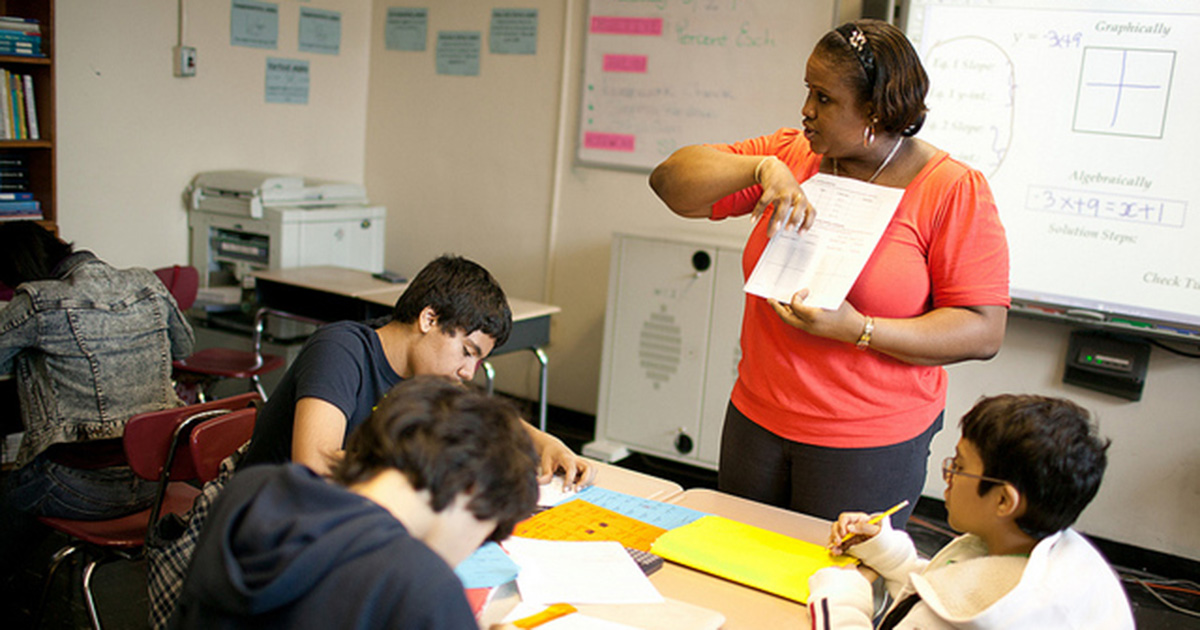Learning how to teach a subject area is a hallmark of the NYU Steinhardt Teacher Residency. Teacher residents become experts in teaching their content area while understanding how to reach and serve all students. With an immersive, practice-based mentorship model, residents gain expert ability to teach their subject to the range of needs within any given classroom – from special education students to high achievers to emergent bilinguals.
For the master of arts in teaching in Secondary Education degree, prospective residents choose from these content areas:
- English
- Math
- Science: biology, chemistry, Earth science, and physics
- Social studies
- Special education generalist
Here are a few ideas to keep in mind when selecting content areas.
What does it mean to specialize in a content area? In the Teacher Residency, residents learn practical skills that are essential for all teachers while also learning how to effectively teach their chosen subject area.
Over the yearlong master’s program, residents get support and guidance from dedicated NYU Steinhardt content mentors. Content mentors work with residents to build subject matter knowledge, skills in pedagogy, and culturally responsive and inclusive lessons. Since the Teacher Residency prepares teachers for middle and high school classrooms, content area expertise and an ability to teach the content are both critically important.
How should an applicant choose a content area? Perhaps you majored in history, English, math, or a science in college and developed a love for the subject. Maybe you did not major in one of these subjects but took course work in one area, have a passion for it, and imagine yourself teaching it.
Applicants to the Teacher Residency must have a bachelor’s degree and 30 credits (or a minimum of 24 credits) in one of the content areas.* Special education candidates must have a distribution of liberal arts course work in the four content areas.
A candidate can be accepted into the program even if they are six credits short in one of the content areas. They will then have to make up those six credits separately either before or during their residency year. If a candidate is more than six credits short for a content area, they can make up the requisite course work and then apply at a later date. Learn more about the eligibility requirements in content areas.
Combining subject matter knowledge with research-backed instructional techniques prepares you to become an effective teacher. Are you interested in learning more about content-area requirements? Do you have questions about your transcript or course codes? We have enrollment specialists on hand to answer all your questions.
*Content-area requirements differ for our district partner in the School District of Palm Beach County in Florida if applicants want to teach in Grades 5-9. Eighteen credits are required in each content area.
